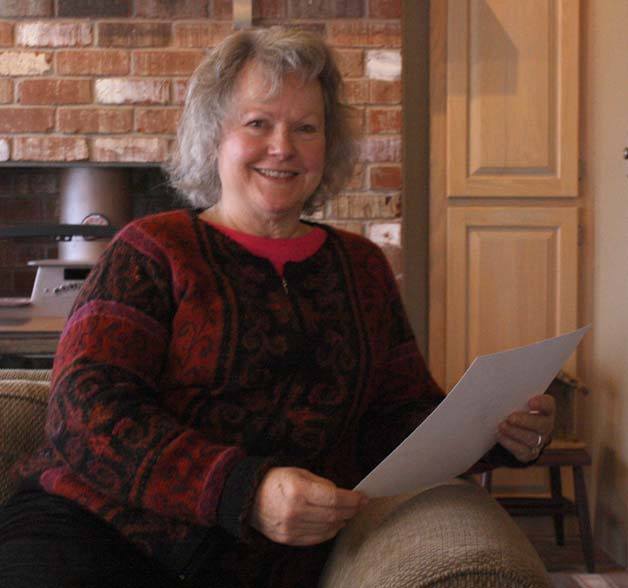Suzanne Popp — a prolific painter, rancher and director of infrastructure aid organization VillageSteps — has translated decades of travel to Africa into a semi-historical novel.
“The Bride Price,” published Dec. 1, is the story of Myrna Chitundu, a young girl with a promising academic future and dreams of becoming a doctor. She is first girl to be accepted into the fictionalized Royal Academy, an English colonial school, and impresses her instructor with her aptitude and dedication. But her plans are thrown away when she is raped and impregnated by a family friend. The man offers her family a lebola — a dowry — in exchange for her hand in marriage, which they accept. Her family is saved by the dowry and the loss of a mouth to feed.
Despite that dark beginning, Popp insists the story is ultimately uplifting. The story begins in the 1960s and follows the girl, Myrna Chitundu, as she grows into a woman, becoming matriarch to three generations of family. The strength of a family fostered by her nurturing — Popp says the name Myrna translates to “comfort” in English — is the fruit that redeems a bad seed.
“In some ways (in African culture) the communal aspect is very strong,” Popp said. “(Myrna) builds that. She decides she’s not going to be robbed of her sense of being.
“Her husband, who seems like a real monster at the beginning of the story, you come to understand him a bit. As you read you learn he’s a warrior and a traditional man.”
She built her story on the foundation of 40 years of diary entries, built and maintained over repeat trips — an average of one to two returns a year. Popp and husband Ken joined the Peace Corps after graduating from college. Their first destination was Ghana, where she taught English and African literature at a teachers training college, but they traveled overland to areas of Central, East and Northern Africa. Since that first trip, they have returned to the continent many times to build homes and lead classes in topics such as sex education, which can be a taboo subject in some of the local cultures, she said. In her travels, she heard the hopes, dreams and life stories of many women and girls.
The kernel of “The Bride Price” comes from one such acquaintance. On one of her trips, Popp met a 66-year-old woman who related the story of how she came to be married to her late husband, a man nearly 30 years her senior, and how their marriage evolved as they built a family together. In her elder years, she had few regrets over the events of her life.
“I wanted to tell her story, and what it would be like to marry off to someone so much older,” Popp said.
Telling that woman’s story was a longstanding desire, but it wasn’t until she read Paul Theroux’s nonfiction book “Dark Star Safari: Overland from Cairo to Cape Town” that she was inspired to write; not as a copycat, but a counterpoint.
Approximately 40 ago, Theroux was a teacher in the Malawi bush. His book chronicles his impressions of the continent on a return trip. His impression was not good. He called the condition of many areas of the continent “decrepit,” and he was particularly critical of the long-term impact of Western aid programs.
“It’s such a negative book,” Popp said. “The teams we’ve taken with VillageSteps … every time I ask them what single word sums up their experience. Many of them just say, ‘joy.'”
Popp deliberately stayed away from historical political developments because she wanted to demonstrate how little the political instabilities reported stateside affect day-to-day life in Africa.
When Popp began work on her book in earnest, she found the writing came easily. She worked a few hours early in the day, then stopped to consider how she might write the day’s work differently. Content was never a problem.
Editing, however, was. When all was said and done, she lopped off about a quarter of the original manuscript to clean up her narrative. But getting to that point was a torturous process of eliminating scenes and characters to which she had become attached. She also learned she will never again ask people to critique her first draft before it’s finished, she said. She related the story of one friend who said she loved the story except for the sex scenes, calling the book “ruined” by them. Popp considered the scenes vital and kept them in; but the experience still planted some measure of doubt that made the writing process that much harder. When she embarks on her next project, she intends to finish the process clean before accepting opinions, she said.
“The Bride Price” is published by Nation9, Inc. and presently sold on Amazon in print and Kindle ebook format.



